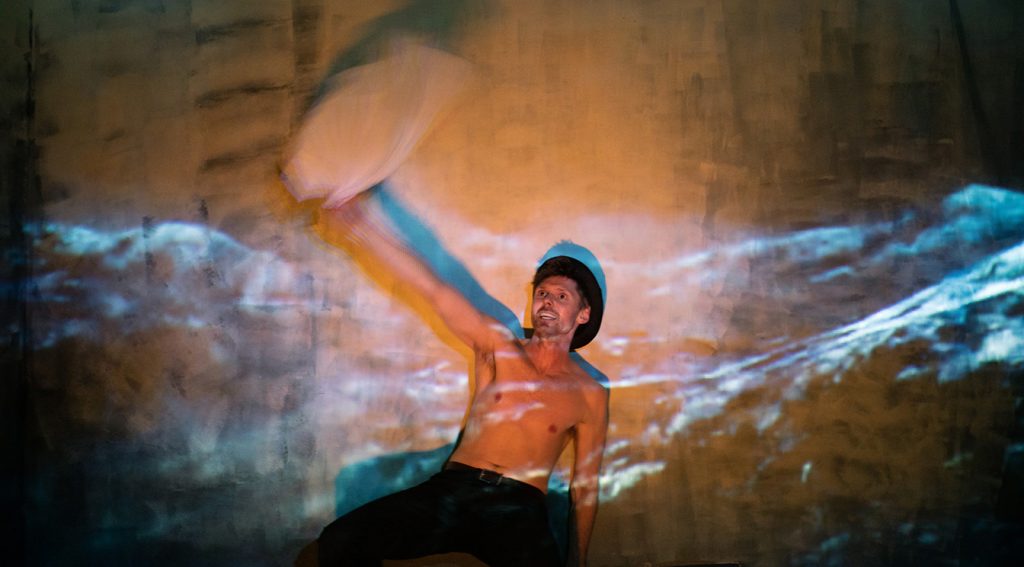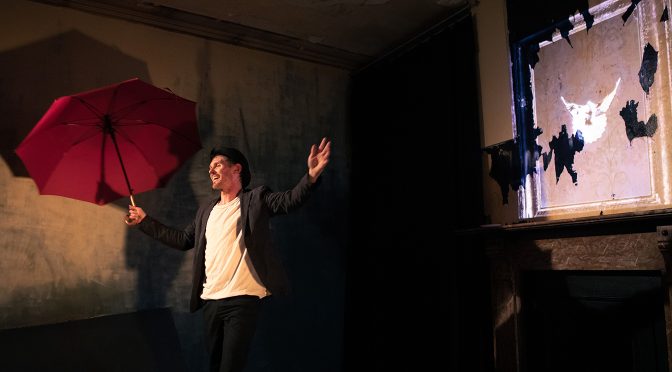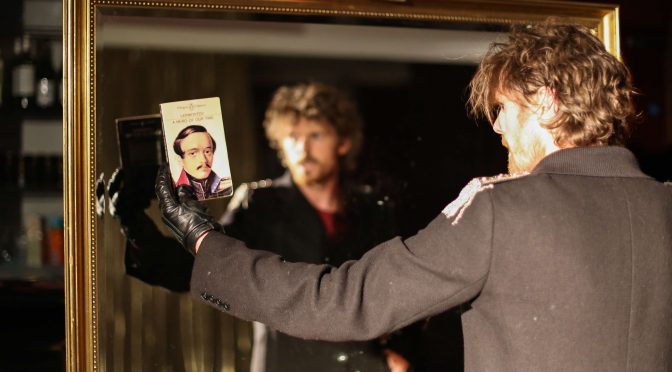Lots of us read -and reflected – more than usual during the Coronavirus lockdown. And many, including Oliver Bennett and Vladimir Shcherban of HUNCHtheatre, took that strange time to create (in this case) something very special. The finest of storytelling, full of humour and insight, Pass The Hat proves to be quietly profound.
The book Bennett and his director Shcherban focus on is Farewell Leicester Square, a biography by a famous busker called Harry Hollis. As you might expect, after telling us about himself as an actor, Bennett slips into the character of Hollis and the result is charming. Both Bennett and Hollis have an avuncular charisma and a sweet sense of humour. They share a love of performance for its own sake that is stirring.
The reason for Bennett’s interest in Hollis is a potential family connection. Cue some genealogical detective work (another lockdown pastime). Looking into his grandparents’ lives, there are tangents – some of them dark. It turns out the dates don’t line up. Why the family myth, and why does it matter?

Stories are ways to structure our lives; to “fashion some kind of order”. That this telling can be a beautiful thing, despite shadowy motives, becomes clear with Pass The Hat. Deceptively straightforward, the show uses projections, props and puppets with a light touch. And some of the simplest yet most effective lighting you could wish for. Above all there is Bennett’s performance: using every inch of this intimate space and Vera Reshto’s design, he dances and fights back and forth through history. There’s even a shipwreck!
It is very easy to watch Bennett during this hour-plus piece. That gentle humour, with phone calls interrupting the action, helps. It’s a blissful surprise to realise how caught up in these plays on memory we have been guided through. A moving finale focusing on his grandfather’s dementia enforces how fragile the tales we tell ourselves are. It is compensation that storytelling is so safe in HUNCHtheatre’s capable hands.
Until 8 April 2022
www.tickettailor.com/events/stonenest
Photos by Valya Korabelnikova



